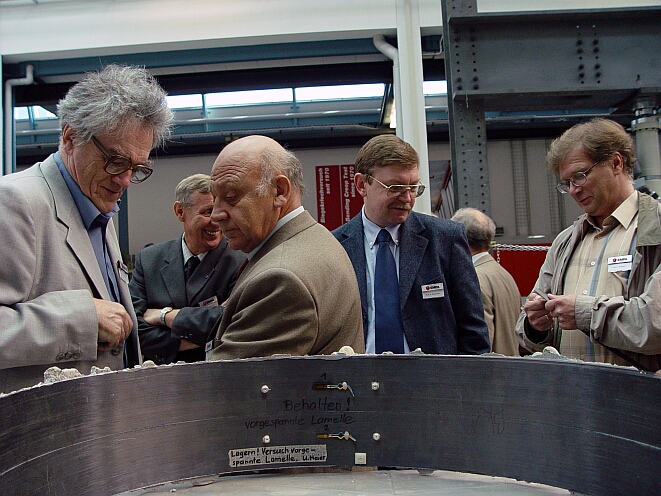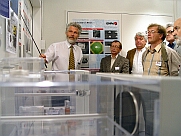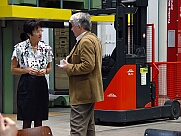A delegation of high-ranking Russian scientists visits the Empa
Strengthening scientific cooperation
Researchers at the Empa in Duebendorf were recently paid a visit by high-ranking members of a Russian scientific delegation. The visiting professors were particularly interested in the areas of biotechnology and the nanosciences. The aim of the visit was to evaluate the potential for joint research projects.

|
At the invitation of Charles Kleiber, State Secretary for Science and Research, fifteen top Russian and Siberian scientists visited Switzerland from the 1st to the 6th of September. During their stay, the guests looked in on the Federal Institutes of Technology in Zurich and Lausanne, the pharmaceutical industry in Basel and on CERN in Geneva, amongst other organizations, so that all concerned could get to know each other better. Along the way, the scientists also dropped in on the Empa, where the focus was fixed on the areas of biotechnology and the nanosciences. The visitors were able to see for themselves Empa's involvement in ceramic nanoparticles, which play an important role in oxide fuel cells as well as dental repair work. They experienced first hand more details of the process of improving the functionality of thin films by the |
||||
|
use of specific nanoparticles, and were shown laboratories equipped with the most modern systems for synthesis and analysis on the nanometer scale, one example being the FIB (Focused Ion Beam) workbench. |
|||
|
Suitable processing conditions for the manufacture of tailor-made biopolymers are being evaluated and optimized in several biotechnology research projects currently in progress at the Empa. |
||||
|
Thanks to their good biodegradability and high biological compatibility, natural polymers lend themselves extremely well to multifaceted applications in chemistry, pharmaceuticals and medicine – all fields in which there exists a great deal of potential for international cooperative projects. |
|||
|
The Russian researchers were also very interested in the presentation on persistent organic pollutants (POPs). This class of industrially manufactured chemicals is transported great distances through the atmosphere, hardly degrades and accumulates in the food chain. Certain POPs act like hormones, can disrupt human development and can even cause cancers. In the context of the UN's Stockholm convention on persistent organic pollutants, which Switzerland signed in 2001 and ratified a short time ago, the EMPA has conducted research on these substances at various levels, including their identification and evaluation, reducing the emission of POPs from industrial facilities and materials, and evaluating the danger to humans and the environment which these pollutants pose. |
||||
|
Empa Contact: Robert Helmy, Communikation/Marketing, |
||||


